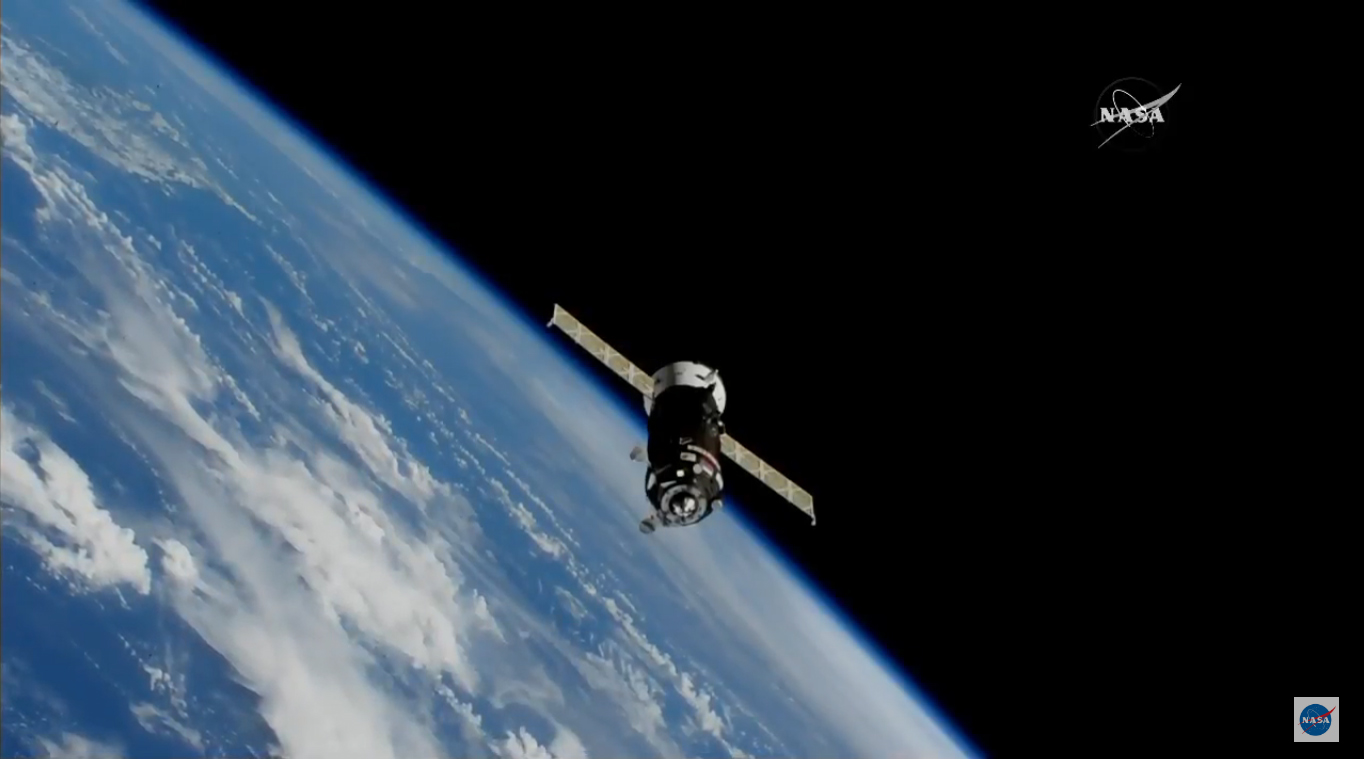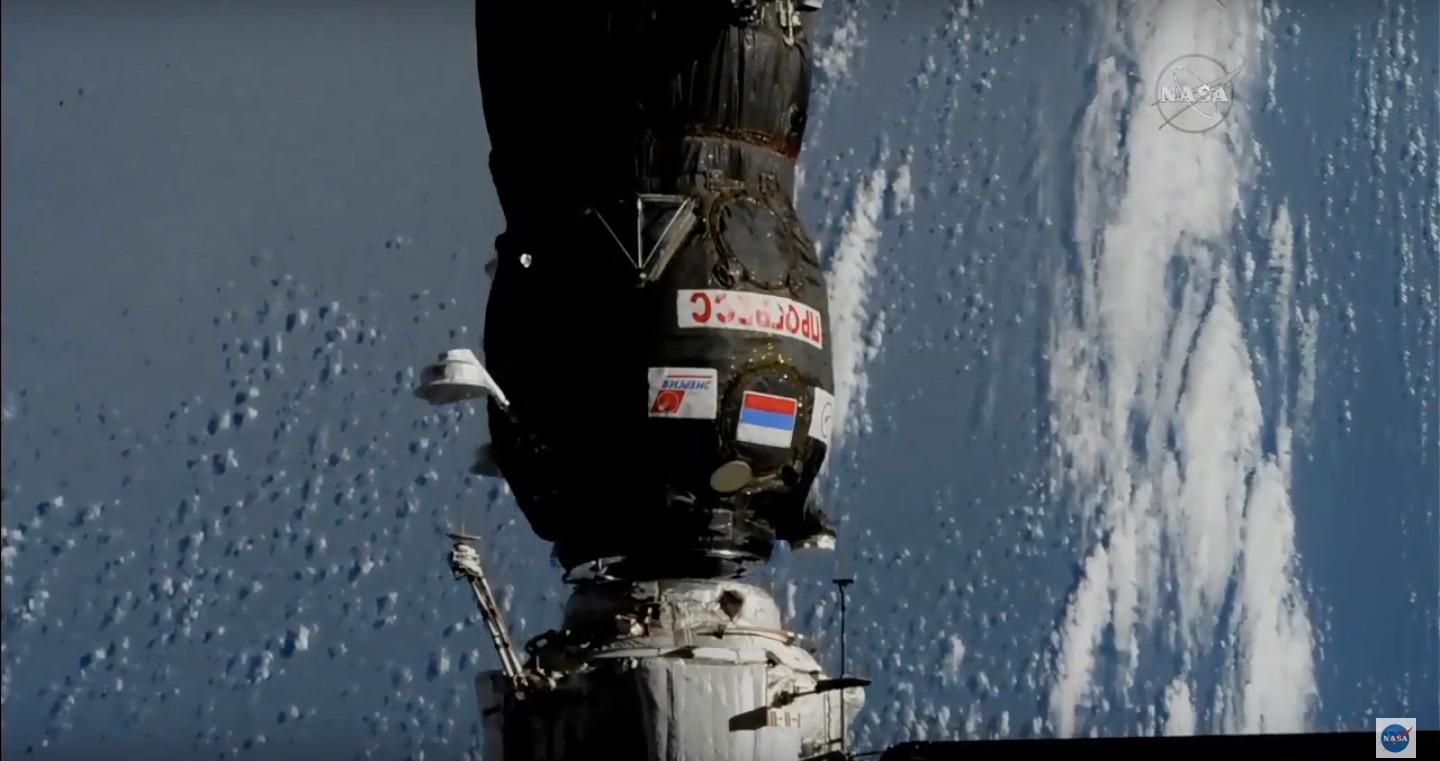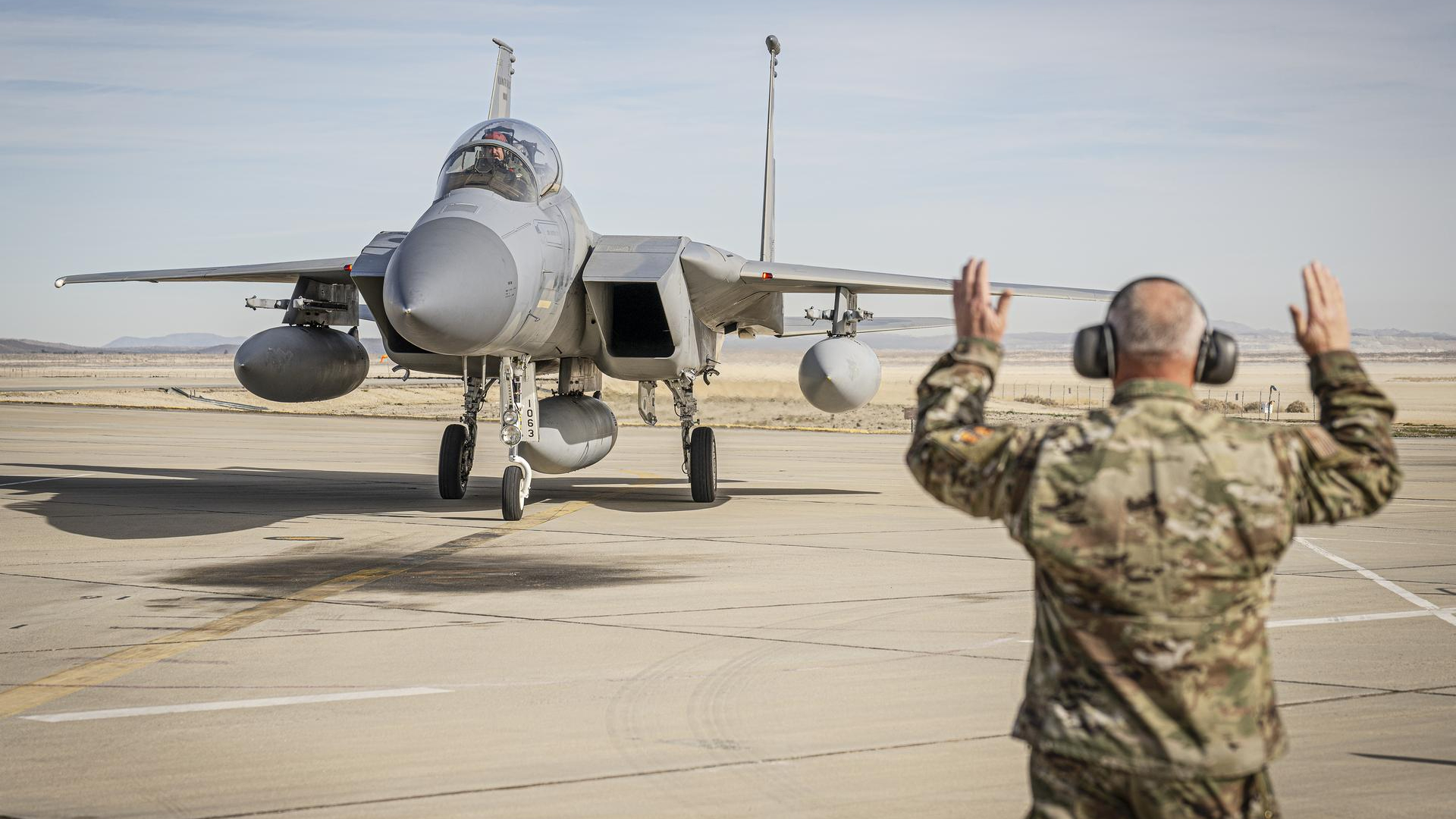Russian Cargo Ship Sets New Record for Fastest Trip to Space Station
A Russian cargo spacecraft set a record tonight (July 9), arriving at the International Space Station (ISS) less than 4 hours after lifting off.
The robotic Progress 70 freighter, which is packed with nearly 3 tons of food, fuel and other supplies, docked with the station at 9:31 p.m. EDT (0131 GMT on July 10) after completing a mere two orbits of Earth. The vehicle had launched from Baikonur Cosmodrome in Kazakhstan at 5:51 p.m. EDT (2151 GMT).
Progress 70 linked up with the space station as both spacecraft sailed high over the Tasman Sea between Australia and New Zealand. And there was a bonus: The spacecraft docked a full 8 minutes early, making for an even faster trip than expected. [How Russia's Progress Spaceships Work (Infographic)]
The quickest previous trips to the ISS, pulled off by Progress freighters and crew-carrying Russian Soyuz spacecraft, had taken about 6 hours and required four orbits of our planet.
The newly completed flight was designed to "demonstrate an expedited capability that may be used on future Russian cargo and crew launches," NASA officials wrote in a statement last week.
Progress 70 marked Russia's third such fast-track try. The country had aimed to pull it off during Progress missions in October 2017 and February of this year but reconfigured both into two-day voyages after liftoff delays closed the orbital-dynamics window required for the exceptionally quick trip.
Progress spacecraft are disposable vehicles that have been supplying the ISS since 2000, the year astronauts first took up residence on the orbiting lab. If all goes according to plan, Progress 70 will stay attached to the station until January 2019, NASA officials said. The freighter will then be loaded with trash and sent to burn up in Earth's atmosphere.
Breaking space news, the latest updates on rocket launches, skywatching events and more!
Two other robotic vessels currently resupply the ISS as well — SpaceX's Dragon capsule and the Cygnus spacecraft, which is built by Northrop Grumman. Cygnus is disposable, but Dragon survives the trip back down to Earth.
Both private American freighters typically take several days to reach the ISS.
Follow Mike Wall on Twitter @michaeldwall and Google+. Follow us @Spacedotcom, Facebook or Google+. Originally published on Space.com.

Michael Wall is a Senior Space Writer with Space.com and joined the team in 2010. He primarily covers exoplanets, spaceflight and military space, but has been known to dabble in the space art beat. His book about the search for alien life, "Out There," was published on Nov. 13, 2018. Before becoming a science writer, Michael worked as a herpetologist and wildlife biologist. He has a Ph.D. in evolutionary biology from the University of Sydney, Australia, a bachelor's degree from the University of Arizona, and a graduate certificate in science writing from the University of California, Santa Cruz. To find out what his latest project is, you can follow Michael on Twitter.


